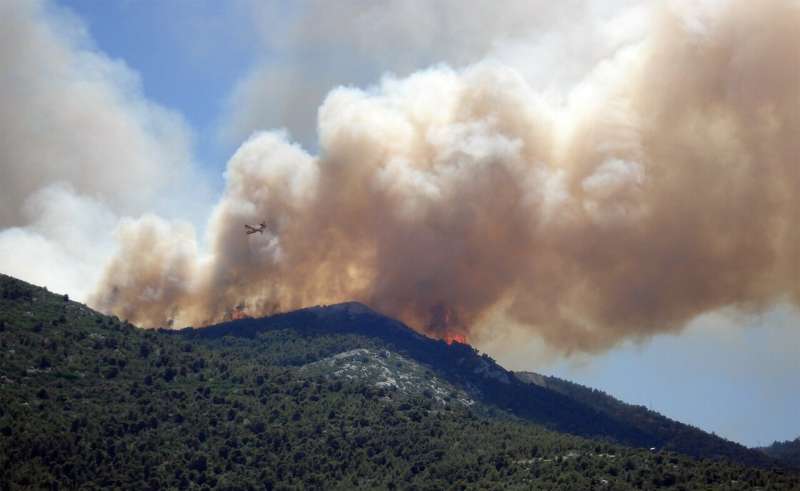#Study suggests that wildfire smoke increases risk of going into labor prematurely

Table of Contents
“Study suggests that wildfire smoke increases risk of going into labor prematurely”

In a new study to be presented today at the Society for Maternal-Fetal Medicine’s (SMFM) annual meeting, The Pregnancy Meeting—and published in the American Journal of Obstetrics and Gynecology—researchers will unveil findings that suggest that being exposed to another type of and potentially more dangerous pollutant ― smoke from wildfires ― increases a pregnant person’s chance of going into labor prematurely, also referred to as spontaneous preterm birth (versus one that is medically induced).
The detrimental effects of poor air quality on a person’s health are well documented. In pregnant people, research has shown that poor air quality, such as smog, can lead to a number of adverse outcomes, including preterm birth (PTB), one of the leading causes of infant mortality in the United States as well as globally. PTB is defined as delivery before the 37th week of pregnancy.
Now, in a new study to be presented today at the Society for Maternal-Fetal Medicine’s (SMFM) annual meeting, The Pregnancy Meeting—and published in the American Journal of Obstetrics & Gynecology—researchers will unveil findings that suggest that being exposed to another type of and potentially more dangerous pollutant ― smoke from wildfires ― increases a pregnant person’s chance of going into labor prematurely, also referred to as spontaneous preterm birth (versus one that is medically induced).
Wildfire smoke is especially harmful to people’s health because it contains extremely fine particles that can enter deep into the lungs and may worsen medical conditions such as asthma and heart disease. These tiny particles can also travel hundreds and sometimes thousands of miles from the wildfire’s point of origin.
Researchers reviewed birth certificates and hospital delivery data from 2007-2012 of more than 2.5 million pregnant people in California. They compared that information with daily estimates of wildfire smoke intensity—based on satellite images—by zip code.
Data revealed that four weeks prior to conception through the first 20 weeks of pregnancy, 86 percent of pregnant individuals were exposed to at least one day of wildfire smoke, with an average exposure of 7.5 days. Results showed that wildfire smoke was significantly associated with spontaneous preterm birth, and each additional day a pregnant person was exposed to wildfire smoke slightly increased the odds of delivering an infant prematurely.
“Wildfires lead to acute and abrupt changes in air quality,” says the study’s lead author Anne Waldrop, MD, a maternal-fetal medicine subspecialist fellow at Stanford University in Palo Alto, Calif. “And some emerging evidence suggests that wildfire smoke could be worse for your health than other types of pollutants. So, even as we work to decrease other forms of air pollution, with wildfires becoming more frequent, more intense, and happening on a much larger scale, exposure to wildfire smoke is a serious public health problem, especially for vulnerable populations like pregnant people.”
More information:
www.eventscribe.net/2023/smfm2023/
Anne R. Waldrop et al, Antenatal wildfire smoke exposure and hypertensive disorders of pregnancy, American Journal of Obstetrics and Gynecology (2023). DOI: 10.1016/j.ajog.2022.11.082
Citation:
Study suggests that wildfire smoke increases risk of going into labor prematurely (2023, February 12)
retrieved 12 February 2023
from https://medicalxpress.com/news/2023-02-wildfire-labor-prematurely.html
This document is subject to copyright. Apart from any fair dealing for the purpose of private study or research, no
part may be reproduced without the written permission. The content is provided for information purposes only.
If you liked the article, do not forget to share it with your friends. Follow us on Google News too, click on the star and choose us from your favorites.
For forums sites go to Forum.BuradaBiliyorum.Com
If you want to read more Like this articles, you can visit our Science category.




